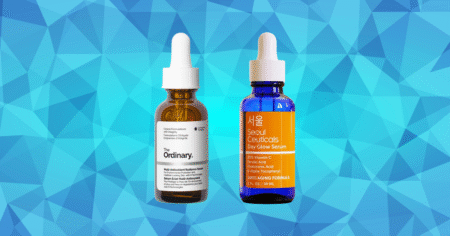Being in a relationship with someone who struggles with addiction comes with its challenges, but one of the more difficult experiences is relapse.
If you suspect your partner may have relapsed, you may naturally feel concern, confusion and fear for their well-being, as well as for the stability of your relationship. And of course, there are more questions than answers. Are the changes you notice really a cause for concern? Are you overthinking? And what should you do next?
We asked relationship and addiction experts to share their advice on how to best approach your partner, and the steps you can take to support them while still protecting your own emotional health.
Understand that this is normal.
“Arm yourself with knowledge,” advised Matthew A. Solit, a licensed master social worker and executive clinical director with LifeStance Health. “According to SAMSHA, relapse occurs with an estimated 40-60% of individuals after treatment, with other studies showing rates as high as 85% relapse rates in the first year of treatment.”
He noted that relapses in substance abuse are like relapses in any other chronic health condition.
“Substance abuse is a mental illness and not any less severe or impactful as others,” said Racine Henry, a licensed member of the American Association for Marriage and Family Therapy. “Your partner is not choosing to relapse in a cavalier or nonchalant way. It is a daily battle.”
The fact that your partner has relapsed doesn’t mean all progress is lost or that they will definitely continue to engage in substance abuse.
“Unfortunately, relapse is often a part of a person’s recovery,” said Taylor Santioni, the therapist manager of the virtual intensive outpatient program at Sophros Recovery. “I believe knowing and understanding this allows us to have more compassion for our loved ones who are struggling. We also cannot control our loved one’s recovery ― this often leads to feelings of frustration and helplessness.”
Instead, she emphasized supporting loved ones without trying to force them to be a certain way. Challenges should be expected, and the goal is progress, not perfection ― the latter of which can lead to secrecy and false impressions.
“Recovery is not linear,” said Will Burse, an addiction expert and CEO of True Self Recovery. “There will be highs and lows. Some people relapse and bounce back stronger; others may take more time. Be patient, but also honest with yourself about what you can and cannot handle.”
Approach them when they’re sober and foster a sense of calm and safety.
“Choose a time to talk when your loved one is sober and most likely to be receptive,” said Scott Strode, founder and executive director of the sober active community The Phoenix. “Avoid having difficult conversations when they are intoxicated, as they are less able to engage meaningfully. Try starting the conversation gently, for example ― ‘Do you have a minute? I wanted to check in and see how you’re doing.’”
Be sure to talk in private, and don’t confront them in the heat of the moment. The goal is to foster a calm and safe environment for this conversation.
“No one should carry the burden of addiction alone and no relationship should be left to unravel under its weight.”
– Lee Hawker-Lecesne, clinical program director at The Cabin Group
“One of the more painful realities of relapse is the emotional aftermath it brings ― not only for the person who has relapsed, but for those who love them,” said Lee Hawker-Lecesne, clinical program director at The Cabin Group. “The shame attached to returning to active use can be overwhelming. In many cases, the person may not be ready or willing to acknowledge what has happened, and instead may respond with irritability, defensiveness, or even anger.”
He noted that these reactions are common ways to deflect shame or distress by externalizing blame and pushing others away.
“If your partner becomes defensive, remember that this behavior often masks guilt and fear, rather than genuine aggression,” Hawker-Lecesne added. “Stay calm and avoid escalating the exchange. Rather than arguing, reaffirm your concern with statements like, ‘I’m not here to blame you ― I’m here because I care, and I’m worried.’ Give your partner the dignity of space while still holding a boundary. In time, many people come to reflect on this defensiveness with remorse, especially when their loved ones meet them with both clarity and compassion.”
Keep the conversation open and judgment-free.
“It is important to sit down with your loved one and talk to them openly and with true empathy,” Solit said. “Addiction is a disease, not a weakness, not a flaw of character or morality. But the fear of judgment and punishment can cause people to hide the addiction, which can easily impede the recovery process.”
Take a nonjudgmental approach to the conversation to encourage honesty and transparency.
“Oftentimes, when a loved one has relapsed, they are feeling an immense amount of guilt and shame,” Santioni said. “Acting in a confrontational or accusatory manner could exacerbate these feelings and lead to defensiveness and potentially a prolonged relapse. Focusing on ourselves in the conversation by using ‘I statements,’ expressing our feelings and pointing out the objective observations ― ‘I noticed your eyes were red’ ― can help open the door to truth and support.”
Be direct and specific in your statements, but ask open-ended questions. Don’t react from a place of anger.
“Even with compassion, you may not get immediate honesty, and that’s OK,” Burse said. “Consistency and clarity in your communication are key.”
Work together to find out what will help them.
“It can be helpful to work together as partners in wellness,” Solit said. “Ask your partner what they need, what they think will help them, and actively listen to their responses. Remind them that you are a support and there to help.”
He noted that removing any drugs and alcohol from where you live can help create a communal environment that’s more conducive to sobriety.
“Look for ways to encourage them to adopt healthy habits, such as exercising together or exploring new routines as a team,” Strode suggested. “Consider asking your loved one what boundaries would help them feel supported in their recovery. This gives them a sense of ownership and clarity in the process, and it’s an opportunity for an open conversation about what feels realistic for everyone involved.”
Remember, you can be honest without being harsh. Use gentle language and tone, and ask questions like, “So, what was going on yesterday?” to give them a chance to look inward without leveling accusations.
“It’s important to learn about not just the external circumstances ― ‘I was a block away from the bar’ ― but also the internal circumstances, how your partner was thinking and feeling,” said John Dimhoff, an assistant professor of graduate psychology at Chatham University. He noted that these aspects can help clarify the solution.
“The most important thing is seeing the setback as a call to action,” Dimhoff added.
Mayur Kakade via Getty Images
Consider your own safety.
“Safety is the top priority,” Strode said. “If anyone, including children or other vulnerable family members, is at risk due to your loved one’s substance use, set firm boundaries immediately. Don’t hesitate to call for help, whether that’s a trusted friend, family member or crisis resource.”
Supporting your loved one does not mean putting yourself or others in physical danger. You have to strike a balance between offering compassion and protecting your own well-being.
“If addiction leads to repeated emotional harm, lying, financial instability or abuse, it’s OK to put distance between you and the person, even if they’re your partner,” Burse said. “Boundaries are healthy and necessary. Setting limits on what behaviors are acceptable helps protect you emotionally, and it can also motivate someone in addiction to seek help. Boundaries aren’t about punishment, they’re about safety and respect.”
Absorbing your partner’s negative feelings ― even if they project them onto you ― is not healthy or sustainable for either of you.
“As a partner of someone with an addiction, you have to understand your own bottom line,” said Tracy Ross, a licensed clinical social worker specializing in couples and family therapy. “In some situations, leaving the relationship may be the best decision. I would encourage anyone with a partner in active use or in recovery to understand the limits of what they can and can’t do and the need to know when it’s time to leave the relationship – not as a punishment but for self-preservation.”
Reach out for support.
“I would consider reaching out for professional help for you and your loved one,” Santioni said. “Even if your loved one is not ready at this time to commit to sobriety, I believe family and friends can always benefit from having support as you navigate this difficult and painful time.”
Qualified health professionals can offer treatment plans and other helpful recommendations, both for the person struggling with addiction and for their partner.
“No one should carry the burden of addiction alone and no relationship should be left to unravel under its weight,” Hawker-Lecesne said. “Therapeutic intervention can provide a safe structure for rebuilding trust, addressing underlying issues, and creating a sustainable path forward.”
“Some people relapse and bounce back stronger; others may take more time. Be patient, but also honest with yourself about what you can and cannot handle.”
– Will Burse, addiction expert and CEO of True Self Recovery
Opening up to people about your situation makes a difference.
“Therapy, support groups like Al-Anon, or even just talking to trusted friends can give you the space and clarity you need,” Burse said. “Take care of yourself. It’s easy to become consumed by worry and emotional exhaustion.”
He also urged people to encourage their partners to seek their own help, whether through a sponsor, support group, therapist or treatment program.
There is only so much you’re equipped to do as their partner, and you should consider whether you have the mental, emotional and financial resources to continue offering the support they need.
“Remember that you aren’t a therapist or substance abuse counselor ― unless you are ― and it’s OK if you don’t know how to handle a relapse or that you don’t react in the best way,” Henry said. “This could be something you both seek feedback from a couples therapist about.”
Avoid enabling.
“Be supportive and empathic, but don’t veer into enabling,” Ross advised. “Empathy is understanding how hard and painful this is for your partner, being willing to see them where they are and hold space for their experience. Enabling is taking responsibility for how they feel or getting them back into treatment. It also comes in the form of protecting someone from the consequences of their actions.”
She advised against covering for your partner if they miss an event or meeting due to a relapse.
“Spend some time self-reflecting or turning to your support system to understand if and when you might be enabling or protecting your partner from the consequences of what they are doing,” Ross added.
Keep in mind that showing compassion doesn’t mean taking on their struggle as your own.
“It’s important to recognize the signs of codependency or enabling,” said Hawker-Lecesne. “Supporting someone in recovery does not mean rescuing them from consequences, nor sacrificing your needs. Recovery thrives on honesty, responsibility, and structure ― for both parties.”
Of course, it’s natural to care deeply about someone and their recovery, but remember that you are not responsible for it.
“Your partner has the power and right to make their own decisions,” Dimhoff said. “Therefore, the most that we can realistically do is to support them as they make those decisions. Your partner is the protagonist in their recovery ― and that’s OK, because how else could it be?”
Don’t let guilt or hopelessness consume you.
This situation understandably brings up a lot of big emotions, but try not to let them overwhelm you too much.
“It could be difficult to balance your love and care for someone diagnosed with a substance abuse diagnosis and your anger, resentment and fear about being in a relationship with someone in recovery,” Henry said. “You are allowed to feel what you are feeling, and you are not wrong or selfish for deciding to leave the relationship. You are equally as powerless against their diagnosis as your partner is.”
Just as your partner’s addiction is not your responsibility to fix, it’s also not your fault or something to feel personally guilty about.
“It’s not helpful to expect perfection of your partner, nor is it helpful to expect perfection of yourself,” Dimhoff said. “You will get frustrated and use the wrong tone of voice at times, and you will miss opportunities to compliment your partner on something good that they’ve done well. These things happen and do not undermine all the good things that you have done.”
Remember that you’re trying your best, and practice self-compassion.
“If it feels like your contributions to your partner’s recovery are small or ineffective, ask yourself, ‘Do I think that they would be further along without my support?‘” Dimhoff advised. “In almost every case, the answer is a clear ‘No!’ It can be hard for dedicated partners to realize this, however, because we’re much more likely to focus on the one thing we did poorly than the nine things we did well.”
Strive for mutual honesty around your goals and limitations.
“If folk are realistic about the issues involved and manage the risks, it’s more than possible to navigate a good life together,” said psychotherapist Noel McDermott. “The onus is on the addict to be aware of the nature of their condition, be open about it and fully support their partner in learning about the risks.”
When your partner relapses, it doesn’t mean all is lost, so try to keep any creeping feelings of hopelessness at bay.
“It is important that we all try and shift the narrative around relapse from one of failure to one of opportunity,” Hawker-Lecesne said. Relapse is not the end of recovery ― it can be the beginning of a deeper one. With the right support, many people return stronger, wiser, and more committed to long-term sobriety.”
Need help with substance use disorder or mental health issues? In the U.S., call 800-662-HELP (4357) for the SAMHSA National Helpline.
Read the full article here








